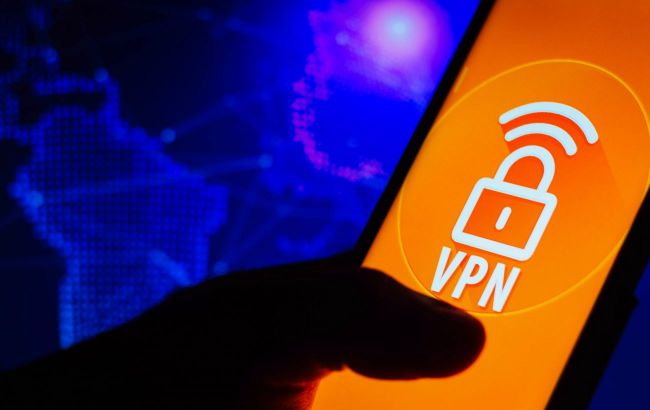How VPN helps protect data when connecting to public Wi-Fi
 How a VPN prevents data leaks when using public Wi-Fi (photo: Getty Images)
How a VPN prevents data leaks when using public Wi-Fi (photo: Getty Images)
Public Wi-Fi is a convenient way to connect to the Internet in cafes, airports, and other public places, but it can also be dangerous for your privacy, reveals ProtechGuides.
What are the dangers of public Wi-Fi
Before you understand how a VPN works, it's important to understand why connecting to public Wi-Fi can be risky. Unlike your home internet, these networks are often unsecured and don't use encryption, making them vulnerable to hackers.
By connecting to public Wi-Fi, your device directly communicates with the network, and anyone on the same network can potentially track your activity.
Hackers can use so-called man-in-the-middle attacks to intercept transmitted data, including logins, passwords, bank card numbers, and personal messages.
What's more, they can also quietly install malware on your device. Since public Wi-Fi networks are widespread in cafes, airports, and hotels, attackers know exactly where to look for victims.
Another serious threat is fake Wi-Fi access points that look like real ones. If you accidentally connect to such a network, hackers can steal your data or infect your device with malware.
How does a VPN protect you on public Wi-Fi networks
In such situations, a VPN comes to the rescue. It is a tool that creates a secure encrypted connection between your device and a remote server that acts as an intermediary between you and the Internet. In essence, a VPN creates a "secure tunnel" for your data, ensuring that it is protected even if intercepted by intruders.
Encryption: protecting your data
One of the key functions of a VPN is to encrypt Internet traffic. Without it, data is transmitted in clear text, making it vulnerable. A VPN converts all the information you send and receive into an indecipherable code. Even if a hacker intercepts this data, they won't be able to decipher it.
Imagine sending a letter in a locked safe - even if someone intercepts it, it's impossible to read it without the key.
Hide your IP address
When you connect to the Internet, your device is assigned an IP address, which can reveal your geolocation, device type, and even your ISP. Attackers can use this information to track your activities or target attacks.
A VPN masks your real IP address by replacing it with the address of the remote server you are connecting to. This makes your online activity anonymous and protects you from surveillance.
Protection against man-in-the-middle attacks
One of the most common threats in public networks is a man-in-the-middle attack. A hacker intercepts your Internet traffic, gaining access to logins, passwords, and other sensitive data.
A VPN prevents such attacks by creating an encrypted connection. Even if an intruder tries to intercept your traffic, they won't be able to decrypt it, which means they won't have access to your passwords, banking information, or correspondence.
Protect against fake access points
Sometimes hackers create fake Wi-Fi networks that look like the real thing. These rogue hotspots are designed to trick you into connecting to them. Once you do, attackers can steal your data or install malware on your device.
However, if you have a VPN installed, even if you connect to a fake access point, all transmitted data will remain encrypted. This means that hackers will not be able to access your confidential information.
In addition, many VPN applications warn users when connecting to unsafe or suspicious networks, providing an additional layer of protection.
Secure online transactions and personal data
A VPN is an indispensable tool if you need to perform a financial transaction, enter personal data, or log into an important account over public Wi-Fi. Without it, hackers could intercept your credentials and passwords or even steal your bank card information during an online purchase.
A VPN encrypts this information, protecting it from intruders. With the growing popularity of online shopping, online banking, and other services that require personal data, using a VPN is an important step to keep your information private and secure, even on public networks.
Should I use a VPN on public Wi-Fi networks
Using a VPN when connecting to public Wi-Fi is one of the easiest and most effective ways to protect your data. A VPN provides a reliable solution to the threats associated with unsecured networks and is available for all types of devices, from laptops and smartphones to tablets.
In addition to security, a VPN allows you to bypass geographic restrictions by changing your virtual location. If you're traveling or using Wi-Fi in another country, you can connect to a VPN server in your home country and access blocked content, streaming services, or censored sites.
Public Wi-Fi is certainly convenient, but it also poses serious risks. Without the necessary security measures in place, your personal data, privacy, and digital security are at risk. A VPN is an affordable and simple solution that encrypts your data, hides your IP address, and protects your online activity from hackers and cybercriminals.
The next time you're at a cafe or airport, don't risk your security by going online without a VPN. Whether you're shopping online, checking your email, or just surfing social media, using a VPN on public Wi-Fi will give you peace of mind and keep your data secure.

